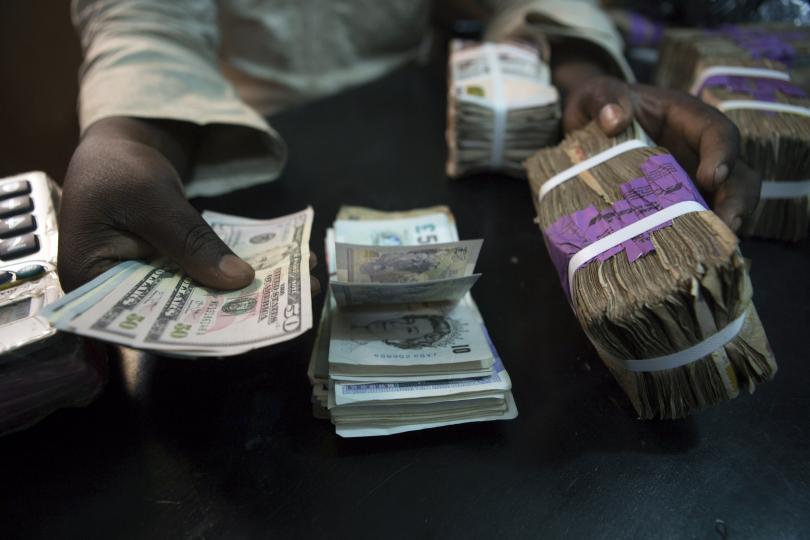Remittances to African countries are expected to decrease by 5.4 percent from $44 billion in 2020 to a projected total of $41 billion in 2021, due to the effects of Covid 19 pandemic, according to findings of Continental Migration Report 2021.
The report titled, “African regional review of implementation of the Global Compact for Safe, Orderly and Regular Migration,” was produced by the Economic Commission for Africa (ECA) in partnership with the African Union Commission (AUC). It builds from four sub-regional reports compiled by AUC and a summary from stakeholder consultations at the just concluded 2021 African regional review meeting on the Global Compact for migration (August 26 to September 1, Morocco ).
Although the COVID-19 pandemic was expected to lead to a decrease in remittances to Africa in 2020, findings of the reports show that by October 2020 remittances to Africa had reached approximately $78.4 billion, constituting 11.7 per cent of global remittances. Remittances have therefore demonstrated greater resilience and reliability as a source of capital in Africa than foreign direct investment flows.
It recommends that governments across the world should take effective action to facilitate and boost remittances in view of supporting the fight against COVID-19 and ultimately building a more sustainable post-pandemic world
According to the report, the costs associated with sending remittances to Africa are some of the highest in the world. Until very recently, average transaction costs were equivalent to 8.9 per cent of the amount being sent for a remittance payment of $200,
With respect to the cost of sending money, the report says Africa is still far from achieving the 3 percent target set out in Sustainable Development Goal 10.
The Addis Ababa Action Agenda of the Third International Conference on Financing for Development and Sustainable Development Goal indicator 10(c) provides that countries should, by 2030, reduce to less than 3 percent the transaction costs of migrant remittances and eliminate remittance corridors with costs higher than 5 percent.
Remittances are estimated to constitute approximately 65 per cent of the income of some receiving countries and senders spend an estimated 15 percent of their income on remittances.
For 25 African countries, all of which have large diaspora populations, remittances are the primary source of national income.
In response, a number of African countries have taken action to lower the costs of remittance transfers. Some countries also offer diaspora bonds to investors and have relaxed foreign exchange controls to allow for electronic and mobile money transfers at reduced costs.
“It should be noted, in that regard, that the use of digital money transfer platforms reduces transfer fees in Africa by an average of 7 per cent,” says the report.
“Private financial institutions also offer incentives to encourage members of diaspora communities to use their services, including low transaction fees for remittances, and facilitate diaspora-initiated projects, especially in the real estate sector. These measures all promote the financial inclusion of migrants and their families.”
The report recommends that member States should support migrants and their families through the adoption of laws and regulations to facilitate the sending and receiving of remittances, including by fostering competition among banks and other remittance handling agencies with a view to establishing low-cost transfer mechanisms.
African countries should also make every effort to reduce the transfer costs associated with remittance payments, inter alia, by making more extensive use of digital transfer solutions, such as MPESA, and by streamlining the regulatory constraints associated with international money transfers. African States should also engage with destination countries to identify ways to enhance the provision of basic services to migrants in those countries.
To achieve Global Compact objectives 1, 3, 7, 17 and 23, member States should implement steps proposed in the context of regional economic community-led dialogues on migration; and consider the increasingly important role played by diaspora communities in fostering development, including through remittance payments, skills development initiatives and the adoption of emerging technologies.
ECA projects that remittance inflows to Africa could decline by 21 percent in 2020, implying $18 billion less will go to the people who rely on that money. It is therefore critical to preserve this essential lifeline. As the world enters an economic downturn, remittance flows will be more important than ever for the poorest and most vulnerable people, espcially those without access to economic and social safety nets.

 Forex3 weeks ago
Forex3 weeks ago


 Naira2 weeks ago
Naira2 weeks ago
 Billionaire Watch2 weeks ago
Billionaire Watch2 weeks ago




 Naira2 weeks ago
Naira2 weeks ago




 Naira4 weeks ago
Naira4 weeks ago




 Naira2 weeks ago
Naira2 weeks ago


 Naira7 days ago
Naira7 days ago
 Banking Sector4 weeks ago
Banking Sector4 weeks ago






















